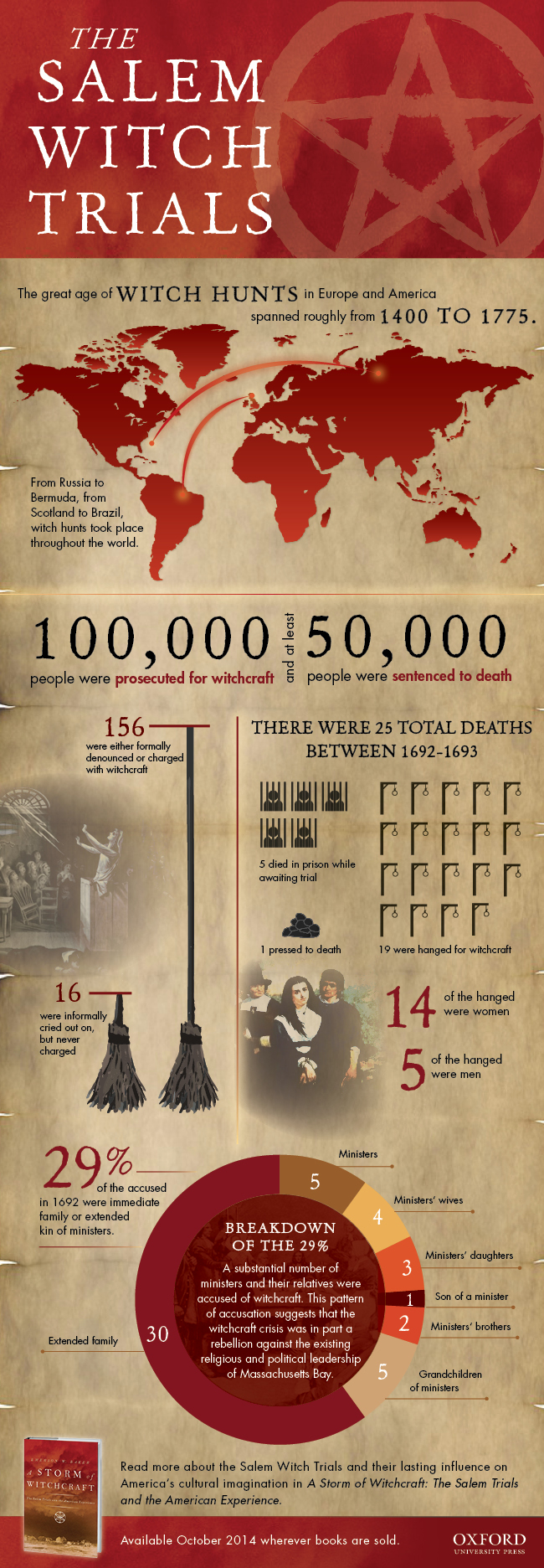Malcolm Yarnell tweeted today a link to a fascinating Oxford University Press blog post concerning the Salem Witch Trials The post was discussing Emerson W. Baker’s A Storm of Witchcraft: The Salem Trials and the American Experience. It provided a fascinating infographic on the witch trials that includes an interesting statistic on the number of clergy or families of clergy who were accused of witchcraft. The idea that Baker appears to be suggesting is that this reflects the larger culture’s move away from the church and its leadership and may also reflect the reality of the dysfunction within the churches of that time. It is an interesting thought, and one worthy of consideration.
Walking Together Ministries
A Resource for the Pilgrim Church


People are still accused of witchcraft today, and while it is not a crime, per se, the allegations occasionally play a role in a modern trial. The WM3 were prosecuted on the theory that one of them had an interest in the occult and and that the murders were a satanic ritual. It was later learned that the expert who testified for the state had a mail order degree and no expertise but they were nevertheless convicted.
There will be a trial next month in Ft. Smith Arkansas where the defendant was allegedly interested or involved in the occult. In reality, it is a cases where a weird looking kid was surrounded and threatened by three drunken thugs. It is doubtful the defendant’s interest in the occult will be relevant and admissible at trial but that has not stopped the police and prosecutors from attempting to convict him in the press.
Interesting stuff, Lloyd. Thanks so much for sharing that. I think in the developing world that charges of witchcraft continue to this day as well.